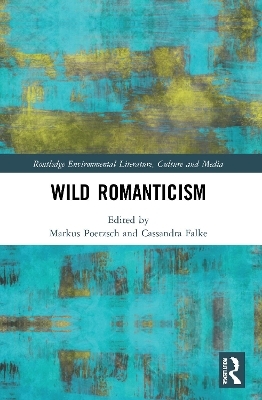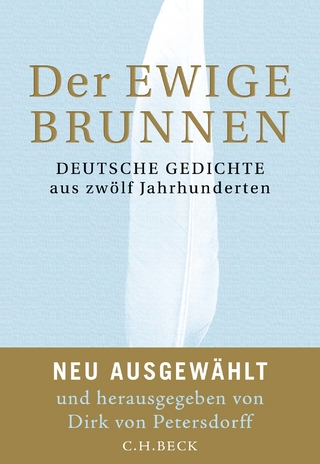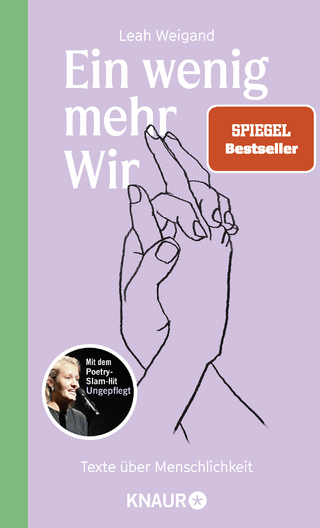
Wild Romanticism
Routledge (Verlag)
978-0-367-75351-1 (ISBN)
Wild Romanticism consolidates contemporary thinking about conceptions of the wild in British and European Romanticism, clarifying the emergence of wilderness as a cultural, symbolic, and ecological idea.
This volume brings together the work of twelve scholars, who examine representations of wildness in canonical texts such as Frankenstein, Northanger Abbey, "Kubla Khan," "Expostulation and Reply," and Childe Harold´s Pilgrimage, as well as lesser-known works by Radcliffe, Clare, Hölderlin, P.B. Shelley, and Hogg. Celebrating the wild provided Romantic-period authors with a way of thinking about nature that resists instrumentalization and anthropocentricism, but writing about wilderness also engaged them in debates about the sublime and picturesque as aesthetic categories, about gender and the cultivation of independence as natural, and about the ability of natural forces to resist categorical or literal enclosure.
This book will be of great interest to students and scholars of Romanticism, environmental literature, environmental history, and the environmental humanities more broadly.
Markus Poetzsch is Associate Professor of English at Wilfrid Laurier University, where he specializes in British Romantic literature and ecocriticism. He is the author of Visionary Dreariness: Readings in Romanticism’s Quotidian Sublime and has published essays on John Clare, William and Dorothy Wordsworth, Thomas De Quincey, Leigh Hunt, and Henry David Thoreau. His research considers intersecting themes, such as aesthetics and landscape gardening, pedestrianism and loco-description, anthropocentrism and ornithology, poetics, and ethics. Cassandra Falke is Professor of English Literature at UiT – The Arctic University of Norway. Her books include Phenomenology and the Broken Body (co-ed. 2019), The Phenomenology of Love and Reading (2016), Literature by the Working Class: English Autobiography, 1820–1848 (2013), and Intersections in Christianity and Critical Theory (ed. 2010). She has published essays on romanticism, phenomenology, education, and the role of the reader. Her current project discusses acts of reading in light of recent theorizations of complicity.
Introduction
Cassandra Falke and Markus Poetzsch
Weakness and wildness in Wordsworth’s "The Brothers"
Emma Mason
Wild freedom and careful wandering in the poetry of William Wordsworth and John Clare
Sue Edney
Plumbing the depths of wildness: from the picturesque to John Clare
Markus Poetzsch
Savage, holy, enchanted: Coleridge in concert with the wild
Gregory Leadbetter
Human grapes in the wine-presses: vegetable life and the violence of cultivation in Blake’s Milton
Tristanne Connolly
Wild plants and wild passions in Percy Bysshe Shelley’s poems for Jane Williams
Cian Duffy
Wilding Europe and Childe Harold´s Pilgrimage
Cassandra Falke
Hölderlin, Heidegger, and hyperobjects
William Davis
"Almost Wild": Jane Austen’s dirtiest of heroines
Colin Carman
"Wild above rule or art": volcanic luxuriance, subterranean terror, and the nature of gender in Ann Radcliffe’s A Sicilian Romance
James Lesslie
"A strange unearthly climate": James Hogg’s tale of the Arctic wild
Robert W. Rix
"Vast and irregular plains of ice": wilderness as smooth space in Frankenstein
Mirka Horová
Index
| Erscheinungsdatum | 22.12.2022 |
|---|---|
| Reihe/Serie | Routledge Environmental Literature, Culture and Media |
| Zusatzinfo | 5 Halftones, black and white; 5 Illustrations, black and white |
| Verlagsort | London |
| Sprache | englisch |
| Maße | 156 x 234 mm |
| Gewicht | 710 g |
| Themenwelt | Literatur ► Lyrik / Dramatik ► Lyrik / Gedichte |
| Geisteswissenschaften ► Sprach- / Literaturwissenschaft ► Anglistik / Amerikanistik | |
| Geisteswissenschaften ► Sprach- / Literaturwissenschaft ► Literaturgeschichte | |
| Geisteswissenschaften ► Sprach- / Literaturwissenschaft ► Literaturwissenschaft | |
| Technik ► Umwelttechnik / Biotechnologie | |
| ISBN-10 | 0-367-75351-0 / 0367753510 |
| ISBN-13 | 978-0-367-75351-1 / 9780367753511 |
| Zustand | Neuware |
| Haben Sie eine Frage zum Produkt? |
aus dem Bereich


